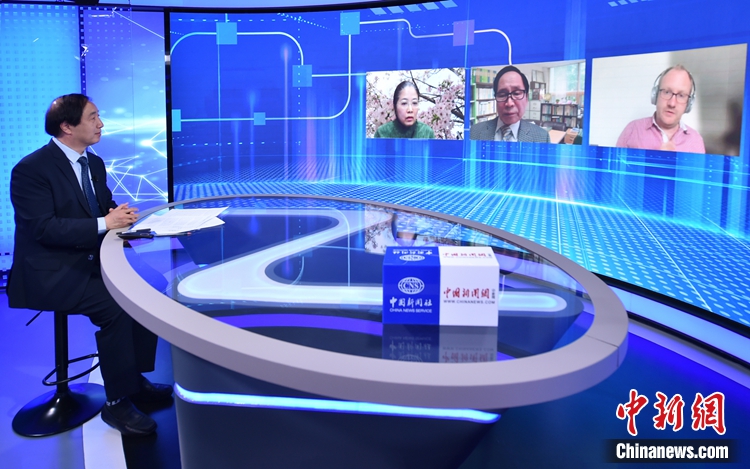
(ECNS)--When a growing elderly population gets coupled with a low fertility rate, they become a problem faced by many countries.
By the end of 2021, China's population aged 65 and above reached 200 million, accounting for more than 14.2% of the whole population, marking that China has entered a moderately aging society.
Faced with this "silver wave", how can the world's most populous country change the "burden of the elderly" into a "longevity dividend"? It's a major issue in China.
In the world, Western Europe is the first region in the world to start population aging, and in Asia, Japan and the ROK have rich experience and lessons in dealing with the aging population. What can China learn from them?
In the latest W.E. Talk, Dr. Du Peng, vice president of China Population Association and vice president of Renmin University of China, has been invited to talk with Dr. Reiko Hayashi, deputy director-general of Japan's National Institute of Population and Social Security Research (IPSS), Prof. Kim Ik Ki, former professor of the Department of Sociology at Dongguk University and Prof. Stuart Gietel-Basten, visiting researcher of Erasmus University and the Netherlands Interdisciplinary Demographic Institute (NIDI), professor of Social Science and Public Policy and director of Center for Aging Science at HKUST.
Experts say that the elderly population is not a social burden, but huge social resources. The socio-economic development of a country or region is not necessarily determined by population, but by whether the population policy can maximize the potential of its people. China needs to adapt to the new demographic reality, make full use of its human resources, release the full potential of its population, and shift from relying on the "demographic dividend" to "talent dividend".
Here's an excerpt of the dialogue:
Population policy counts more than only the number of people
Du Peng: Now in China, there are worries and concerns caused by higher dependency ratio and weaker economic driving force. For the adjustment of demographic policies and upgrading of supporting facilities, what can China learn from Japan and the ROK in this aspect?
Reiko Hayashi: It is not the number of population which determines, but it is the policy to maximize people and then the number of people whether it is increasing or decreasing. So that is how the policy which makes good use of the existing people will count more than only the number of people. And Asian countries have to accommodate the increasing number of older persons. And accordingly, we shifted the policy from the social welfare for the elderly to the health and long-term care for the elderly.
Kim Ik Ki: The ROK society has undergone the main process of demographic transition since the early 1960s. The birth rate and mortality rate started to decline. This transformation has occurred under the influence of socioeconomic factors, such as modernization, social economic development, organization, and national family planning policies. Since 1996, the ROK government has changed the direction of family planning from fertility control to fertility promotion. However, this adjustment seems to be too late. Both Japan and ROK's fertility promotion policies have not succeeded in raising fertility levels.
Du Peng: In the thesis China's low fertility may not hinder future prosperity published on academic journal PNAS, Prof. Basten, along with other two scholars hold the view that when associated with rapid increases in human capital, low fertility rates may not pose such a significant obstacle to continued development over the coming decades. Would you like to briefly tell us how you come to this conclusion? Please.
Stuart Gietel-Basten: So this is based upon the concept which Wolfgang Luts calls "demographic metabolism", which is that you can have a society which becomes older and maybe possibly smaller, but if that society is also better educated, better skilled, and if those improvement in human capital can be translated into improved productivity then that change, that human capital shift can offset the demographic shift. It's just about adapting to this new demographic reality and making the most of the people that you have, releasing the full potential of the people in your society rather than just creating and asking for more and more people.
What do the young parents really want?
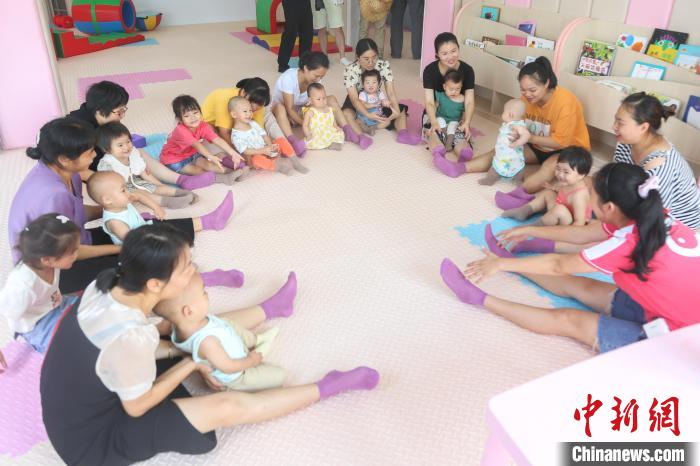
Du Peng: Global responses to take a low fertility can be largely categorized into three aspects, time supports by providing maternity and paternity leaves, economics supports by offering subsidies and tax cut and service supports by giving child care. So what do the young parents really want and what’s the most helpful way for them?
Reiko Hayashi: Japanese, especially men, works too hard and that they even do not have time to see their family. So we have been trying to do this work style reform. And to some extent, it was effective, but the biggest effect was COVID-19. And all of sudden, the proportion of people who are doing remote work increased so sharply. So COVID-19 effect is big, especially for 2021. So if now tele-work, the remote work and flexible work style will continue to be in our culture, then I think this will be the best effect for creating the better environment for young people. In addition, of course maternity or paternity leaves, economics support such as family and child allowances are important.
Kim Ik Ki: Actually the Korean government copy the Nordic countries like Finland and the Netherlands work-family balance policies. But actually anyway, the ROK government has failed to provide the sufficient benefits for working women. In addition, unlike Nordic countries, the ROK government did not provide a practical environment for Korean men. Both flexible working hours and paternity leaves are needed to successfully raise fertility levels. This is what young parents really want in the ROK.
Stuart Gietel-Basten: The state policies needs to be in tandem with workplace policies, providing a better workplace environment, but then also within the family, and equalizing gender roles and improving gender equity at home, in terms of partners contributing more equally towards child care, domestic duties.
I think you can say that low fertility or these very low fertility rates are, rather than being a problem in and of themselves, they are actually a symptom of other problems in society, of other institutional challenges in society.
If you have to look after not only your children, but you and your partner as well, but then you also have got to look after your parents and maybe even your partner's parents as well, then the burden is gonna be far too high. So it may well be that if the government really wants to support child bearing, ironically, may have to invest in elder care to remove another burden from the shoulders of working-age people.
From "demographic dividend" to "talent dividend"
Du Peng: The elderly are not definitely the burden but a kind of resource for the society. What can China learn from Japan and the ROK to better tap the senior resources?
Reiko Hayashi: We cannot say that aged people should die earlier, so that to remove the burdens. It is not the case in Japan, for example. We are having the population decline, but every year the life expectancy is increasing. That means that the increasing number of elderly is slowing down the population decline, also our healthy life expectancy keeps on increasing. So while the traditionally-defined working age population is declining, if we consider the increase of healthy old people then the decrease of workforce is not so much. However, what we have to do is that the promotion of employment, promotion work for elderly.
Kim Ik Ki: In the ROK, various programs are being developed to create jobs for the elderly. KLFIA, which means Korean Labor Force Institute for the Aged, was established as an organization that comprehensively governs this. This institute is developing many programs to provide appropriate jobs for the elderly, actually, employment and social activity support projects for the elderly at the institute.
Du Peng: We will invite Stuart to give his comment, because in your column article on The Guardian, you said that China will not need to continue adjusting to the seismic shift away from "renkou hongli", or "demographic dividend", and reap a rencai hongli, or "talent dividend". So what can China learn from countries in Western Europe such as the Netherlands and the UK?
Stuart Gietel-Basten: Whenever there is some discussion of burdens in older range, we have to be very, very precise about what that actually means. But then in order to deal with this in the longer term, and why I talk about this kind of human capital dividend, is recognizing the younger population in China or in the ROK or in Japan today is very different to the younger population 50, 60, 70 years ago. Their skills and the opportunities that younger population can be able to yield, could be, if it's translated into better productivity, can actually yield this dividend. So it's about reforming and improving the labor market for all age, not just for the older population or the population in their 60s.
How to reach consensus on "delayed retirement"
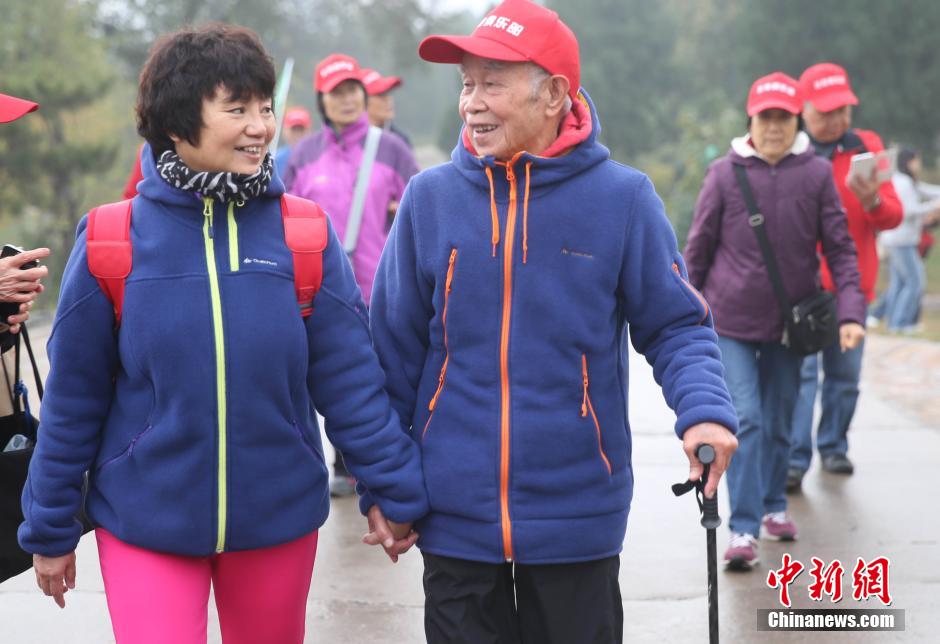
Du Peng: So the aging population has been strongly related to the retirement policies. That's also a hot topic in China to discuss about the retirement age delay. So how can the entire society reach consensus on delaying the retirement age from your experience and how should a supporting system be formulated?
Stuart Gietel-Basten: For example, in the UK, the link between retirement and pension is now pretty much gone. There is no retirement age that your company cannot force you to leave, cannot kick you out at age 60 or 65 or whatever it is, unless there's some very specific justifiable reason for that. Now that is different to the pension age. The pension age is still fixed so you can choose to retire. You can choose to leave your work, but you may not be able to claim your pension until that particular age. And so that prevents people from being forced out of work before they really want to.
And I think when people say that this takes jobs away from younger people, that having people working until that late 60s, 70s is gonna increase youth unemployment. There's not a lot of evidence. That is actually the case we think about the different kinds of jobs which people across the life course are doing.
Reiko Hayashi: First, as Prof. Basten mentioned, we have to distinguish two different things. One is retirement age; the other is pensionable age. In Japan, we are now in the process of increasing the pensionable age from 60 to 65. But we decided not to delay it any further because it is important to keep the pension system sustainable so that people will trust it. And so far we can choose if we want to receive the pension from 70 years or 75 years, we can do, then we are going to receive more amount of pension if you delay it.
As for the retirement age, we have to make it flexible so that there will be more flexible work market for the later years. Maybe we can have the first work life from 20s to the 50. And then, for the first work age, maybe we get married, we have children. And then at the age of 50, maybe the children become old enough. And the second work life, it will start from 50 so that you can have a new gain of experiences, so that you can work much later than 60 or 70, you can think about working until 80 years old or until 100 years old. So this kind of retirement age is the key to create the new society or that aged society.











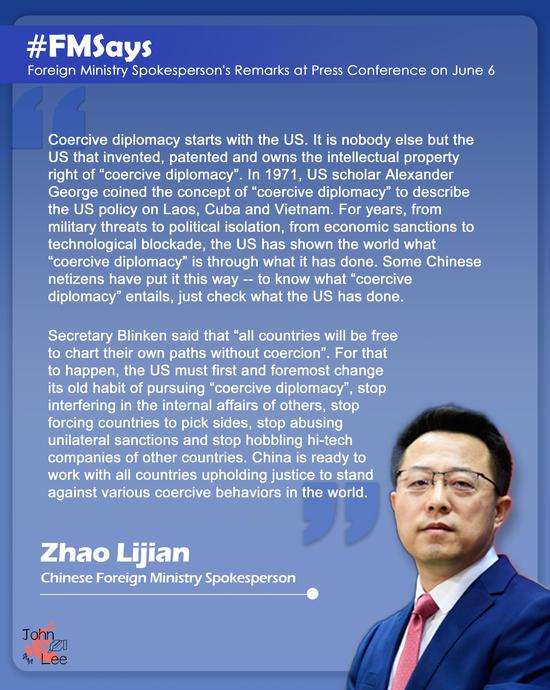
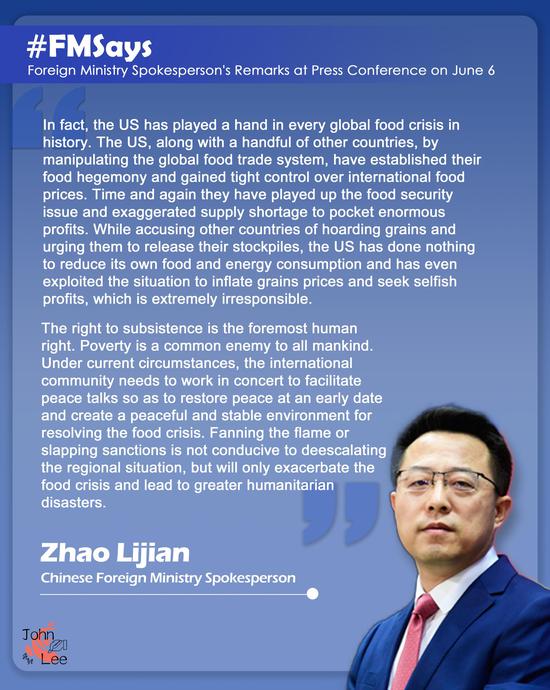
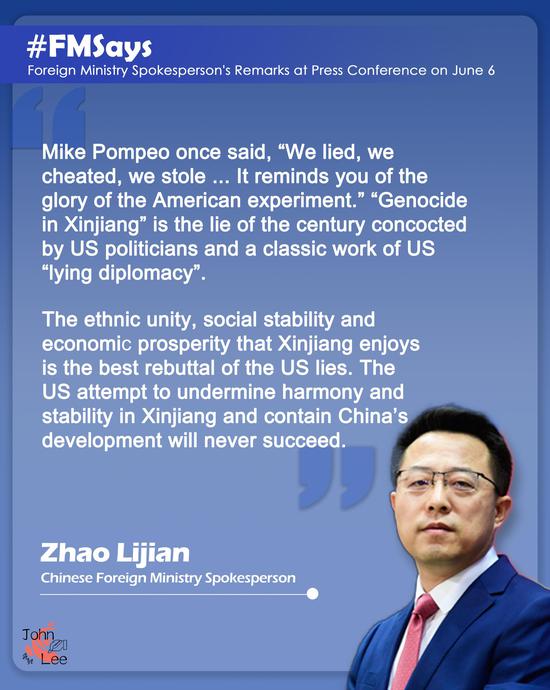

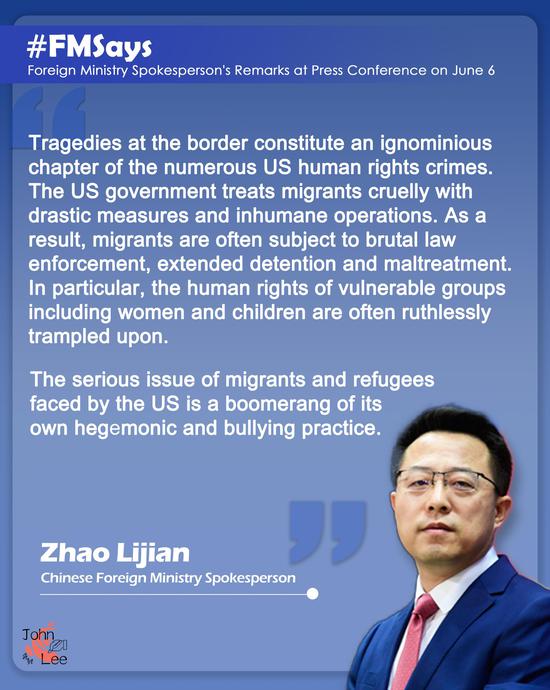






















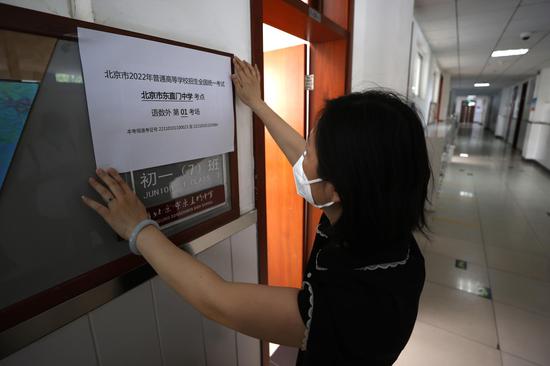











 京公网安备 11010202009201号
京公网安备 11010202009201号